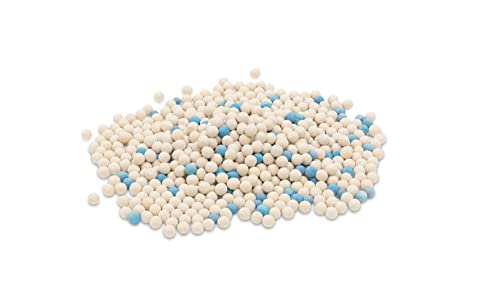
Have a head like a sieve is an idiomatic expression that is commonly used to describe someone who has a poor memory or who easily forgets things. This phrase is often used in a lighthearted or humorous manner to poke fun at someone’s forgetfulness.
When we say that someone has a head like a sieve, we are essentially comparing their memory to a sieve, which is a tool used for separating solids from liquids. Just as a sieve allows small particles to pass through while retaining larger ones, a person with a head like a sieve tends to forget or “let slip through” important information or details.
Having a head like a sieve can be frustrating for both the person experiencing it and those around them. It can lead to missed appointments, forgotten tasks, and a general sense of disorganization. However, it’s important to remember that forgetfulness is a normal part of being human, and it’s something that most people can relate to on some level.
So, the next time you find yourself forgetting something important, don’t be too hard on yourself. Just remember that having a head like a sieve is a common experience, and it’s perfectly okay to rely on reminders and checklists to help keep you on track.
Causes of Forgetfulness
Forgetting things can be a frustrating experience, especially when it happens frequently. Having a head like a sieve can be caused by various factors. Understanding the possible causes can help you better manage your forgetfulness and improve your memory.
1. Ageing
As we age, our cognitive abilities naturally decline. This can lead to difficulty in remembering things, such as names, dates, or even where we left our belongings. Age-related forgetfulness is a normal part of the ageing process, but there are strategies and techniques that can help mitigate its effects.
2. Stress
High levels of stress can impair our ability to concentrate and remember things. When we are stressed, our brain focuses on the source of stress, making it harder to retain new information or recall existing memories. Finding healthy ways to manage stress, such as through exercise, relaxation techniques, or talking to a trusted friend or therapist, can help improve memory.
Other potential causes of forgetfulness include sleep deprivation, certain medications, hormonal changes, lack of focus or attention, and underlying medical conditions. If you are concerned about your forgetfulness or if it is negatively impacting your daily life, it is recommended to consult with a healthcare professional for a comprehensive evaluation.
Remember: prevention and management strategies can help keep your memory sharp! Incorporating regular exercise, getting enough sleep, eating a balanced diet, engaging in mental stimulation activities, and practicing stress-reduction techniques can all contribute to maintaining a healthy memory.
Age-related memory decline
As people age, it is not uncommon for them to experience a decline in memory function. This age-related memory decline can be frustrating and impact daily functioning. Many individuals may feel like they have a “head like a sieve,” struggling to recall names, dates, and other important information.
Causes of age-related memory decline
There are several factors that contribute to age-related memory decline. One major factor is the natural aging process itself. As individuals get older, the brain undergoes changes that can affect memory function. Structural changes in the brain, such as a decrease in the size of certain regions, can impact memory processing.
Another factor is a decline in the production of certain chemicals in the brain that are important for memory formation and retrieval. This decline can lead to difficulties in forming new memories or retrieving stored information.
Managing age-related memory decline
While age-related memory decline is a natural part of the aging process, there are strategies individuals can employ to help manage and improve their memory function.
| Strategy | Description |
|---|---|
| Regular exercise | Engaging in physical activity has been shown to improve memory and cognitive function. Exercise promotes blood flow to the brain and can help support the growth of new neurons. |
| Brain-training exercises | Engaging in activities that challenge the brain, such as puzzles, memory games, or learning a new language, can help maintain and improve memory function. |
| Healthy diet | A well-balanced diet that includes fruits, vegetables, whole grains, and lean proteins can provide the nutrients necessary for optimal brain function. |
| Social engagement | Staying socially active and maintaining strong relationships can help stimulate the brain and prevent cognitive decline. Activities such as volunteering or joining clubs can provide mental stimulation and support overall cognitive health. |
It is important to note that while these strategies may help mitigate the effects of age-related memory decline, they do not guarantee the prevention or reversal of memory loss. It is always recommended to consult with a healthcare professional for personalized advice and guidance.
Stress and Anxiety
Many people experience stress and anxiety in their lives. This can be caused by various factors such as work pressure, relationship problems, financial difficulties, or health concerns. Stress and anxiety can have a significant impact on a person’s mental and physical well-being.
Stress
Stress is the body’s response to a demanding situation. When faced with stress, the body releases hormones that increase heart rate, blood pressure, and energy levels. While some stress can be beneficial and motivate individuals to perform better, chronic stress can have negative effects. It can lead to high levels of anxiety, depression, and even physical health problems like heart disease.
Anxiety
Anxiety is a feeling of unease, often characterized by excessive worrying, restlessness, and difficulty concentrating. It can be triggered by various factors, such as fear, uncertainty, or traumatic experiences. People with anxiety disorders may experience panic attacks, phobias, or obsessive-compulsive behaviors. Anxiety can significantly impact a person’s daily life, making it challenging to carry out regular activities or interact with others.
Managing Stress and Anxiety
There are various strategies individuals can employ to manage stress and anxiety:
- Exercise: Regular physical activity can help reduce stress and promote relaxation.
- Healthy lifestyle: Maintaining a balanced diet, getting enough sleep, and avoiding excessive caffeine or alcohol can contribute to overall well-being.
- Relaxation techniques: Practices like deep breathing, meditation, and yoga can help calm the mind and reduce anxiety.
- Seeking support: Talking to trusted friends, family members, or professionals can provide valuable support and guidance.
- Setting boundaries: Learning to say no and prioritize self-care can prevent overwhelm and reduce stress levels.
It is important to remember that everyone’s experience with stress and anxiety is unique, and what works for one person may not work for another. If stress and anxiety persist and interfere with daily life, it may be necessary to seek professional help.
Lack of sleep
Having a head like a sieve is often caused by a lack of sleep. When we don’t get enough sleep, our ability to concentrate and remember things is greatly affected. Lack of sleep can make it difficult to focus on tasks, stay alert, and remember important information.
During sleep, our brains process and consolidate memories, so when we don’t get enough sleep, our memory can suffer. It becomes harder to retain new information and recall past events. This can be especially challenging when it comes to remembering names, dates, and important details.
Additionally, sleep deprivation can impair cognitive function, leading to slower reaction times and decreased problem-solving abilities. It can also affect mood and emotional well-being, making it harder to regulate emotions and handle stress.
To combat a lack of sleep and improve memory and cognitive function, it’s important to prioritize sleep hygiene. This includes establishing a regular sleep schedule, creating a relaxing bedtime routine, and creating a comfortable sleep environment. Avoiding stimulants like caffeine and electronic devices before bed can also help promote better sleep.
It’s worth noting that chronic sleep deprivation can have long-term effects on brain health and overall well-being. It’s important to prioritize getting enough sleep to maintain optimal cognitive function and overall health.
Medical conditions
Medical conditions can greatly impact a person’s life, causing various symptoms and affecting their overall well-being. Understanding these conditions and seeking appropriate treatment is crucial for managing and improving one’s health.
Alzheimer’s disease
Alzheimer’s disease is a neurodegenerative disorder that primarily affects memory and cognitive function. It is characterized by the accumulation of abnormal protein plaques in the brain, leading to the loss of neurons. Symptoms include memory loss, confusion, and difficulty with problem-solving. While there is no cure for Alzheimer’s disease, there are medications and therapies available to help manage the symptoms and slow down the progression of the disease.
Diabetes
Diabetes is a chronic condition that affects how the body converts food into energy. It occurs when the pancreas either does not produce enough insulin or the body is unable to effectively use the insulin it produces. There are two main types of diabetes: type 1 diabetes, which is an autoimmune disease, and type 2 diabetes, which is often related to lifestyle factors such as obesity and lack of physical activity. Treatment for diabetes typically involves medication, diet and lifestyle changes, and monitoring blood sugar levels.
Other medical conditions include:
- Hypertension: High blood pressure, often caused by lifestyle factors or underlying health conditions.
- Asthma: Chronic respiratory condition characterized by difficulty breathing due to inflammation and narrowing of the airways.
- Arthritis: Inflammation of the joints, causing pain, stiffness, and reduced range of motion.
- Cancer: Abnormal cell growth that can invade and destroy nearby tissues. Treatment options include surgery, chemotherapy, and radiation therapy.
- Depression: A mental health disorder characterized by persistent feelings of sadness, loss of interest, and low energy levels.
It is important to consult with a healthcare professional for an accurate diagnosis and appropriate management of any medical condition. Each condition may require different approaches, such as medication, therapy, or lifestyle changes, to improve overall health and well-being.
Poor Nutrition
Nutrition plays a vital role in maintaining our overall health and well-being. However, poor nutrition can have significant negative effects on our physical and mental health. It is important to understand the consequences of neglecting our diet and ensure that we prioritize healthy eating habits.
Effects of Poor Nutrition
Poor nutrition can lead to various health problems and complications. One of the most common effects is malnutrition, which occurs when the body does not receive enough nutrients to function properly. Malnutrition weakens the immune system, making individuals more susceptible to diseases and infections.
Additionally, poor nutrition can contribute to the development of chronic conditions such as obesity, diabetes, and heart disease. A diet lacking essential nutrients can lead to weight gain, high blood sugar levels, and increased cholesterol levels, putting individuals at a higher risk for these conditions.
The Importance of a Healthy Diet
Having a balanced and nutritious diet is crucial for maintaining good health. A healthy diet provides the body with the necessary vitamins, minerals, and nutrients it needs to function optimally. It can improve energy levels, enhance cognitive function, and strengthen the immune system.
Consuming a variety of fruits, vegetables, whole grains, lean proteins, and healthy fats is key to ensuring proper nutrition. Avoiding processed foods, sugary drinks, and excessive intake of saturated and trans fats is also important in maintaining a healthy diet.
Remember, poor nutrition can have severe consequences on our overall health. It is essential to prioritize a healthy diet to prevent the negative effects of inadequate nutrition. By making conscious choices about what we eat, we can improve our physical well-being and reduce the risk of developing chronic illnesses.






